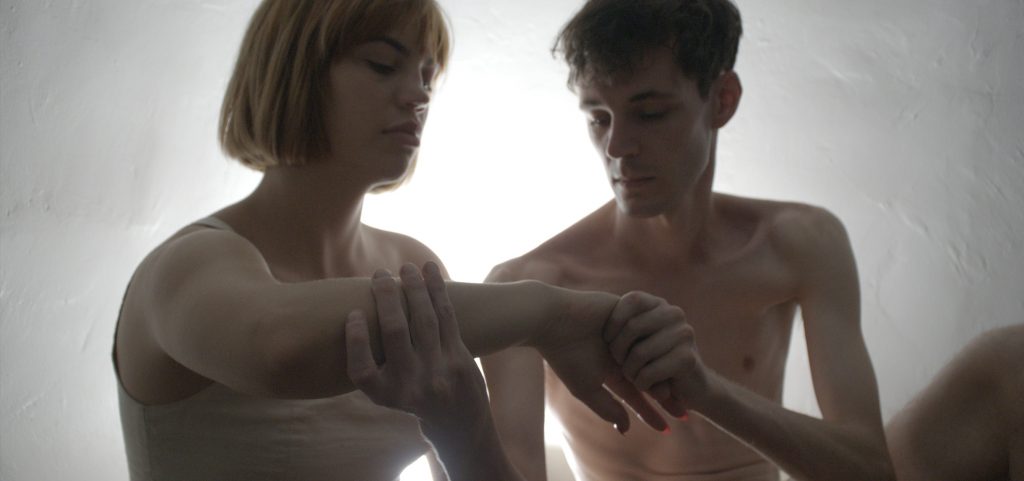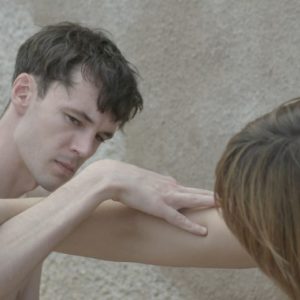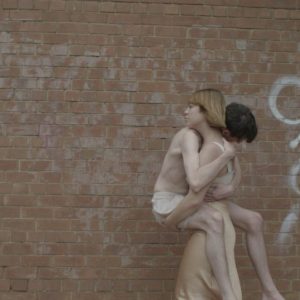KIN is concerned with the subjectivity and difference experienced within familial relations. The work explores the edges of what we know of ourselves in context to family. It asks viewers to consider how much we are defined by these formative relationships, and whether we can recognise their impact on our identities?
I am fascinated that family can represent windows to our future; that they can be reflections or a touchstone on the present; and that they can reveal behaviours that in their routine go unnoticed.
KIN is the struggle for what we can define in response to the presence formative relationships take in our lives. This work, like much of my practice, features movements defined by the interactions between performers at the time of shooting. They are not choreographed. Instead, they are informed by simple conceptual prompts and guided by the maturity of the relationships and presence of one another’s bodies within space.
Here these performers are my own family. Together we push outwards and expand the boundaries the work exists within. With this expansion an allegorical articulation of the ongoing search for what defines self emerges; with the performers falling somewhere between the risks we take in defining our own agency and the safety net that foundational relationships offer.
________
About SIBLING, presented in first iteration of ‘Presence’ in 2020
“ We were searching for ourselves in each other” – Sergei Parajanov, The Colour of Pomegranates
Family tend to reveal more of us than we readily accept.
Siblings in particular carry our histories like imperfect reflections of our genetic and lived experience.
Ingrid is my reflection.
Our relationship is forthright, tumultuous and challenging, but full of support.
Languid and non-linear, nihilistic and intimate, Sibling features physical interpretations of this support – movements that are entirely intuitive and intentionally unchoreographed. They are responses to each other’s presence, the climate of the present and an impression of a complex familial relationship.
Both identifying outside conventional gendered experience, the work explores the tension here between our biological identifiers and self-defined identities. The support found in our relationship guides our navigation of both gendered experience and adversity. Sibling asks viewers to consider our relationships, our support networks and how these impact our reality.
Presence creates spaces of autonomous self-reflection and explores how these spaces are navigated by the body. The body becomes the point of departure; its dimensions and the space it occupies, the narratives it holds and how these unfold around it. The reinterpretation of bodily presence evokes the queer or gender non-conforming body, allowing for a tender consideration of how we perform gender and identity.
Click HERE to view a Sales Catalogue. Please do not hesitate to contact us if you would like to arrange a purchase.
Henry Wolff, Sibling, 2020, Feat. Ingrid Wolff, single channel video, 7 minutes: 22 seconds. Videography Jai McGregor, Recal Media.




